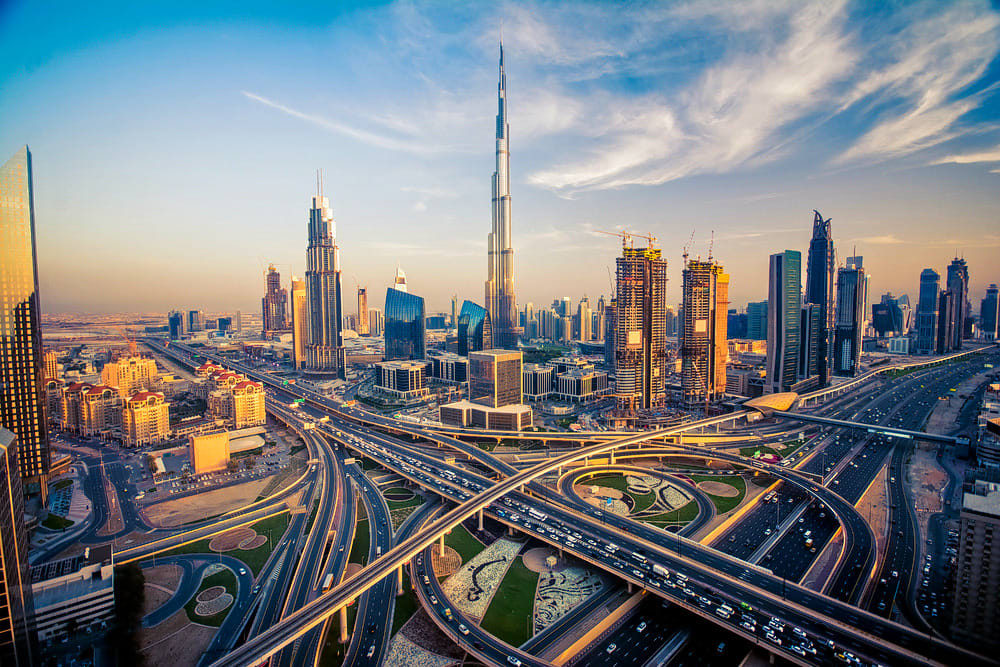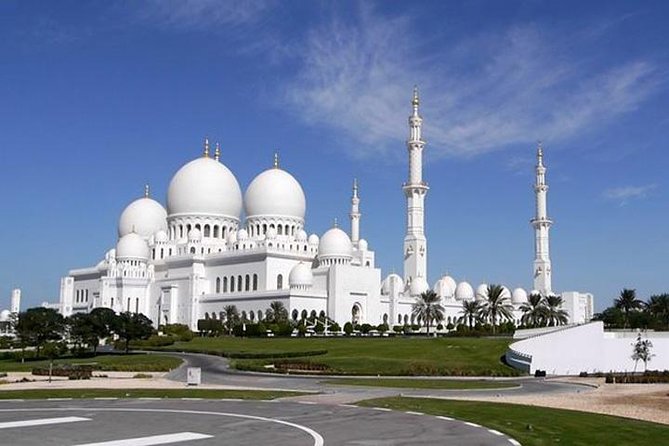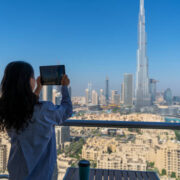Visiting Mosques in Dubai: Rules, Dress Code & Tours

Being a glittering combination of the modern architecture design and magnificent Islamic culture, Dubai boasts some of the most beautiful mosques in the world. Though the city accommodates people irrespective of the backgrounds, when visiting mosques in Dubai, one needs to be careful about the local customs and Islamic values. Keeping in mind the rules and dress codes, as well as tours that are available, will make the experience interesting and respectful to all travelers.
Understanding the Religious Significance of Mosques in Dubai
Mosques are not only the places of worship but they are also the centre of the life of the Islamic community. Dubai treats them as a source of prayer, reflection and education. The voices of calling to prayer are heard through messengers of its minarets five times during a day, when the prayer is inviting Muslim to pray and making foreigners remember that the city is full of strong faith. The togetherness in accordance with relevance of status or otherwise is also exhibited in the mosques.
Mosques in Dubai are designed to combine the traditional Islam style of architecture and the contemporary design of the city. The spiritual buildings include the inlaid domes, the peaceful courtyards, which are all works of art. To non-Muslim visitors, mosques such as the Jumeirah Mosque are available as they allow guided tours that help understand the Emirati culture and the values of Islam. Cultural understanding that is brought about by such visits ensure that Dubai is a hub of knowledge as well as a site of spiritual growth and learning.
General Rules for Visiting Mosques in Dubai
When visiting any mosque in Dubai, it’s crucial to follow specific rules designed to maintain respect and order. Firstly, silence and reverence are expected inside prayer halls.Cell phones should be turned off or put on quiet. Flash photography and loud conversations are not appropriate. Visitors should avoid entering during prayer times unless they are part of an organized tour.
Shoes must be removed before stepping onto the carpeted prayer areas. Some mosques may provide shoe racks or plastic bags for carrying footwear. Eating, drinking, or chewing gum is not permitted within the mosque premises. Additionally, touching religious items, including Qurans and prayer rugs, should be avoided unless invited by a guide or local authority.
Respect for the local culture extends beyond dress and behavior—it includes being mindful of sacred traditions. For travelers holding a Dubai multiple entry visa, these guidelines apply each time you visit a mosque across the city. Proper conduct ensures you’re always welcome, whether you’re admiring the architecture or engaging in an educational tour.
Dress Code Guidelines for Men and Women
One of the most emphasized aspects of visiting a mosque in Dubai is adhering to the proper dress code. For women, modesty is key. This means wearing long, loose-fitting clothing that covers the arms and legs. A headscarf is mandatory and must be worn before entering the mosque. Many mosques provide abayas and scarves at the entrance for tourists who don’t have the appropriate attire.
Men are also expected to dress conservatively. Shorts, sleeveless tops, and tight clothing are not allowed. A simple shirt with trousers is usually acceptable.Men must take off their shoes before entering places of prayer, just like women do.
Dressing appropriately shows respect for Islamic customs and ensures that all visitors are welcomed. Those with a Dubai multiple entry visa who plan multiple cultural outings can keep a modest outfit handy to make mosque visits easier throughout their stay. Wearing respectful clothing helps foster a comfortable environment for all and highlights your understanding of the local customs.
Notable Mosques to Visit in Dubai
Dubai boasts several architecturally and spiritually significant mosques that are open to visitors. The most iconic among them is the Jumeirah Mosque, which welcomes non-Muslims six days a week through guided tours organized by the Sheikh Mohammed Centre for Cultural Understanding.The mosque is a must-see because of its magnificent white façade and traditional Fatimid style.
The Al Farooq Omar Bin Al Khattab Mosque, also known as the “Blue Mosque” in Dubai, is another amazing location. Its opulent interiors and Ottoman-style domes, which were modeled after Istanbul’s Sultan Ahmed Mosque, provide an engrossing experience.
Another significant location is the Grand Mosque in Bur Dubai, which is particularly well-known for its tall minaret and magnificently lit facade. These mosques not only offer spiritual advice but also serve as architectural symbols of Dubai’s unique blend of modernity and heritage.
Mosque Tours and Cultural Experiences
Attending a mosque tour is strongly advised if you want to learn more about Islam and Emirati culture. The Jumeirah Mosque tour stands out as one of the most comprehensive experiences available. During the tour, guides explain the Five Pillars of Islam, local customs, and even encourage questions from visitors to promote cross-cultural dialogue.
Some mosque tours include traditional Emirati refreshments such as Arabic coffee and dates, enhancing the cultural immersion. Visitors are also given the opportunity to observe prayer rituals from a respectful distance, offering a rare insight into religious practices.
Tours are usually conducted in English, and some may offer multilingual support. Booking in advance is suggested, especially during peak tourist seasons. Whether you’re visiting Dubai for a few days or returning frequently on a Dubai multiple entry visa, guided tours provide a richer experience each time. They transform a simple visit into a cultural journey filled with learning and mutual respect.
Photography and Etiquette During Visits
While Dubai is known for being photo-friendly, photography within mosques should be approached with care. Always ask for permission before taking pictures, especially when people are praying. In many cases, photos of the exterior and general areas are allowed, but interior spaces—especially during worship—may be off-limits.
Respect the spiritual purpose of the mosque by maintaining silence and avoiding any behavior that might disrupt the sanctity of the space. Group selfies, loud commentary, and posing in front of worshippers are considered disrespectful.
Follow posted signage, as many mosques clearly state their photography policies. Even if a photo opportunity seems harmless, it’s best to err on the side of caution. For tourists holding a Dubai multiple entry visa, being mindful of etiquette builds a reputation of respect over repeated visits, making you more welcome at religious and cultural sites.
Tips for Families and Group Visitors
Families and groups are welcome to visit mosques in Dubai, provided they adhere to all regulations. For parents, it’s important to prepare children ahead of time by explaining mosque etiquette. Encouraging them to speak softly and move calmly helps maintain the peaceful atmosphere.
Many mosque tours cater to groups and even offer educational sessions tailored for young visitors. It’s a great way to introduce children to different cultures and faiths in an open-minded environment.
Large groups should inform the mosque in advance to ensure smooth coordination. This is especially important during high visitor periods such as Ramadan or religious festivals.
Sure! Here’s the rewritten version with each sentence under 20 words, using active voice and transitional words:
Repeated group visits using a Dubai multiple entry visa often require careful planning with local cultural tour providers. Therefore, forming partnerships with tour providers ensures quicker and smoother access to mosque visits. Moreover, respectful behavior from every group member builds a positive impression on the local community. Consequently, visitors act as cultural ambassadors and promote mutual respect between traditions.
Conclusion:
Dubai’s mosques offer more than just religious insight—they provide a cultural connection between visitors and the UAE’s heritage. Follow the rules, dress modestly, and join guided tours to better understand Dubai’s deep Islamic roots.
Even if it’s your first or fifth visit, you can still explore faith and culture with a Dubai multiple entry visa. The respect shown within mosque walls resonates beyond, fostering harmony between cultures and deepening the travel experience.
Recent Posts
12 Things to Do in New York City in 2025
Top Family-Friendly Places to Visit in Japan
Capturing the Moment: Photography Tips for the Edge Walk
Tags

Dubai




